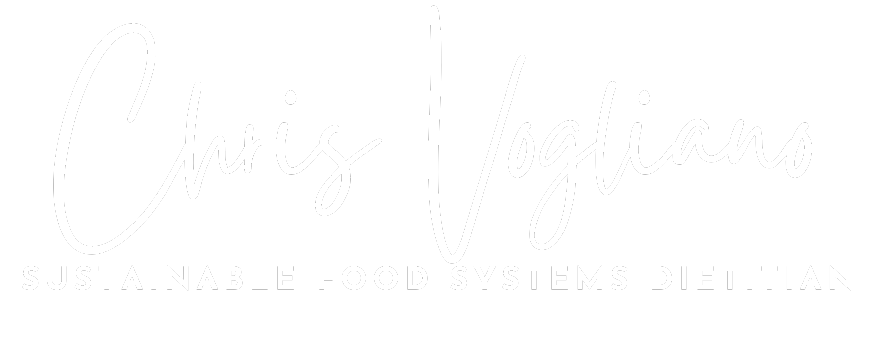4 food labels you should never trust (and 2 you should!)
4 Not-so-trustworthy food labels
Walking through the grocery store aisles can be an overwhelming and even intimidating experience. Heck, I too get information overload and I have a Master's degree in nutrition. Food labels are complex, nuanced, and confusing. Below are 4 labels that don't mean what you'd think, followed by 2 labels that actually have validity.
"Natural" foods
The Food and Drug Administration (FDA) has not developed an actual definition for the term 'natural'. While this may be changing in the future, many companies over-use and abuse this seemingly wholesome label.
The USDA allows the use of the term "natural" to be used in meat and poultry labeling on products that contain no artificial ingredients or added color. So basically unless your chicken breast is injected with artificial brines or flavors (which some are), it is be considered 'natural'. The packaging may even look more eco-friendly, but that's just marketing at its finest.
I don't know about you, but my definition of 'natural' does not include raising animals in small battery cages, feeding them routine antibiotics and/or growth hormones, or even ultra-processed foods (ie: natural cheese puffs).
Local foods
What exactly does "local" mean? Good question! Depends on who you ask..
- Wal-Mart: defines local food as food sold in same state it is grown
- Whole Foods: says within 7 hours of the store
- Seattle's PCC Natural Markets: anything from Washington, Oregon and southern British Columbia (that's a big area!)
- Oxford dictionary: “locavore” = a 100 miles radius
- USDA: 400 miles
If we go with the Oxford dictionary definition of 100 miles, local foods undoubtedly have economic benefits to our small-scale farmers. Buying local helps support smaller farmers and their families. This is a good thing. It helps strengthen our communities and support our neighbors.
What local doesn't mean, however, is that the food is more environmentally friendly, free from pesticide residues, free of hormones, organic, or safer than non-local food.
Also - the greenhouse gas emissions from transporting foods are actually quite small compared to the production of it. In other words, the environmental impact of producing food far outweighs the distance the food traveled to reach your plate. So the food you choose is more telling of the GHG emissions than the proximity it was grown.
Get to know your local farmers and find out how they grow their foods. Then you will be able to confidently purchase foods that meet your personal and ethical standards.
Cage-free eggs
This claim is not all that it's cracked up to be (har har).
In all seriousness, I believe the label 'cage-free' is extremely misleading. Yes, this means that chickens are not in small battery cages (yahoo), but this does not guarantee that they're not crammed into a massive indoor barn (sad face). USDA states that "cage-free hens are not required to have access to outdoors, and have no higher nutritional value than conventional eggs" This claim has no USDA or FDA auditing and is considered “voluntary”.
Free range or free roaming
Similar to cage-free, this is also misleading if you ask me. The USDA definition of 'free range' states that "Producers must demonstrate to the agency that the poultry has been allowed access to the outside." A tiny door in an over-stuffed chicken silo is technically being 'allowed access', but that does not mean these chickens ever get to see the light of day. But hey - they're 'natural' right? (wink face)
So if you're looking to spend a little extra on higher-quality eggs - opt for organic. USDA certified organic eggs are third-party verified and is the more ethical choice.
2 labels that you CAN trust
Rainforest Alliance Certified
To earn the Rainforest Alliance Certified , farms must be audited annually to ensure they meet 10 sustainably-focused categories. These categories span from protecting the rainforest, to conserving water, all the way to ethical labor practices. It feels good to know that the extra money spent to purchase Rainforest Alliance Certified products is actually benefiting people and the planet. Most of the time it's not a huge difference in price either!
Find out more about their sustainability standards here.
USDA Organic
USDA Organic is one of the strongest food labels available in the United States. It certifies that fruits, vegetables, legumes and grains are produced without synthetic fertilizers, synthetic pesticides/herbicides (though some natural pesticides are allowed), sewage sludge, and genetic modification. Organic meat is raised without routine antibiotics, growth hormones, and must be fed organic feed. Reducing antibiotics is extremely important, because the over usage in animal agriculture is a major contributor to antibiotic resistance, according to the CDC (not okay!).
If you want to learn more about organic foods, check out my blog post below:
If preserving the planet and fair wages for farm workers are important to you (and within your budget!), Rainforest Alliance Certified and USDA Organic are two strong labels that you can absolutely trust.
Want an even more eco-friendly diet? Be sure to check out my top 8 ways to reduce your food waste food-print today!
Thanks for reading and making the world a better place to live!
- Chris the Dietitian
PSST - while you're here be sure to check out my sustainable recipes!
Photo credit - Myself and Pixabay.com







